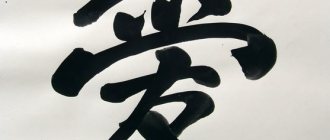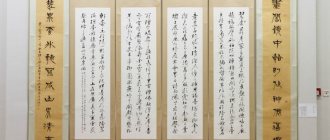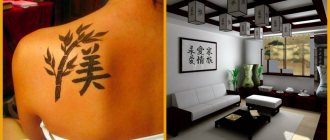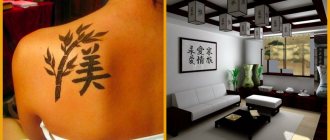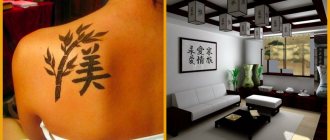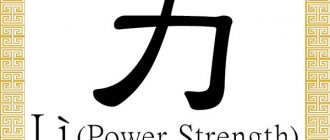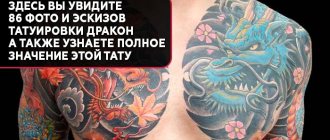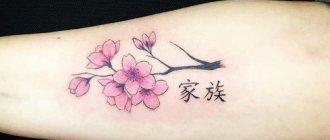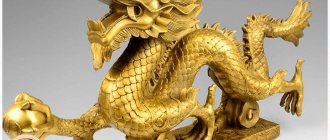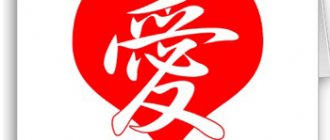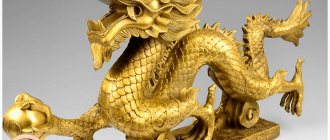What are Chinese character tattoos and their meaning in the modern industry?
fashion. The hieroglyph, in fact, is an illustrative result of a generalization of everything around the symbol. Figuratively, this is not an overgrown well of antiquity, which does not so much replace a certain object or concept as notify us and the environment about it. Alphabetic writing differs from hieroglyphs in that each of the hieroglyphs is assigned a certain meaning, and not only phonetic.
Alphabetic writing differs from hieroglyphs in that each of the hieroglyphs is assigned a certain meaning, and not only phonetic
Chinese characters are considered the most ancient and are used not only in their homeland, but also in Japanese and Korean writing
The number of hieroglyphs is not reliably known to anyone, since they are systematically and continuously modified
- Hieroglyphs tattoo of Chinese origin
- What are keys in Chinese characters?
- What do Chinese characters tattoo mean in Russian?
- Reasons for popularity in tattooing
- What should you know before going to a tattoo salon?
- Which salon should I go to?
- Options for applying a hieroglyph tattoo to the body
The meaning of Chinese characters in the art of tattooing
Chinese characters have been used for tattoos since ancient times. The significance of such an image on the body and the attitude towards it in society has changed. Tattoos with hieroglyphs-pictograms were used by priests in special rituals , including to impart qualities to their owner and even for a kind of treatment.
During the Confucian period, a ban on tattoos was introduced.
At that time, their application was associated with “causing damage” to the human body, which was recognized as a divine gift. In the Middle Ages, tattoos were made on the face of criminals in order to warn respectable citizens that they were facing a criminal person (the more often a person was sent into exile, the more inscriptions were made).
This punishment was called body piercing and the memories of it are still alive in Chinese society, so it is not customary to apply hieroglyphs to the face.
But even when tattoos were a sign of social outcasts, the genre continued to develop and was popular. The 12th-century adventure novel River Backwaters (水滸傳) is replete with characters of tattooed “noble rebel bandits” who were also martial artists.
One of the legendary heroes of the book wore a tattoo of a dragon that wrapped itself around his body 9 times, and another had tattoos of beautiful flowers. Another popular book, The Tale of Yue Fei, changed the concept of tattoos as belonging to a criminal environment or to the lower class.
The owner of a sacred tattoo with the hieroglyphs “perseverance, loyalty and devotion to the country” becomes the main character of the novel - commander Yue Fei from the wealthy Song dynasty. His mother decides to give Yue Fei a tattoo in order to guide her son on a certain path in life and as a talisman.
The real historical prototype of the hero of the novel (a 12th century commander) gained people's love as a person who contributed to the restoration of the professional army of the south and the development of martial arts. Perhaps this fact is associated with the particular popularity of hieroglyph tattoos among warriors and martial artists, which has survived to this day.
Chinese tattoo hieroglyphs and pictures in oriental style became popular among Europeans in the 20th century due to the presence of US and British ships in Hong Kong. Sailors were regular customers of Chinese tattoo parlors, but not only because of their love for exotic things and talismans. Tattoos on the body of naval personnel were recorded and were supposed to help identify the body in the event of death.
Fortunately, most of the sailors returned home alive, taking with them the original “Chinese souvenir” in the form of a tattoo.
In modern China, tattoos are associated with several concepts: fashion, talisman, martial arts, underground, crime. At the same time, criminal tattoos are, for the most part, pictures, the meaning of which is known only to a narrow circle of people, and it is almost impossible to apply them in a regular salon.
Fashionable tattoos with hieroglyphs, often written in a traditional style, are applied by young people under 30 as decoration and to emphasize individuality. Tattoos are sometimes accompanied by images even in 3D, and Europeans like this kind of graphics on the body more.
The names of the zodiac signs according to the Chinese horoscope and even lines from poetry are popular.
As a talisman, hieroglyphs are applied to certain parts of the body (various areas of the arms, legs, collarbone, neck, back) since the location of the inscription is important for activating the action of the tattoo. Such symbols are designed to attract wealth, love, happiness, health into the life of the wearer, and even get rid of bad habits.
Among martial arts masters, both hieroglyphs with individual words, mottos, and images of animals whose qualities the athlete wants to acquire are popular. A tattoo can carry information about a martial arts school or be associated with the “pseudonym” of the master.
Many musicians and artists who create works of contemporary art cover their bodies with a whole carpet of tattoos. The attitude towards tattoos in the artistic community can be expressed in the words of the fashionable Chinese artist Zhuo Dan Ting, who became the first female owner of a famous tattoo art studio in Shanghai:
“...it is a form of art that can be worn and seen every day...”
How to use hieroglyphs
It’s not enough to know how this or that hieroglyph works; you need to be able to activate it and make it work for you. What do I need to do? • Before you determine which hieroglyph you need, carefully study the information about it. It is advisable to search for information in several sources to make sure that a given symbol means exactly what you need. • As you already understand, there are hieroglyphs that are very similar in meaning, but each of them has its own purposes. Therefore, you should determine exactly what goals you want to achieve with the help of hieroglyphs. Your intuition will be of great help in this matter. • Remember that those hieroglyphs that are designed to protect you or your entire family should be located separately from all other hieroglyphs and amulets. Find and allocate a special place for them, where there will no longer be any attributes. • It doesn’t matter at all in what form your hieroglyph will exist. This could be a picture hung on the wall in a frame (you can even draw it yourself) or a sketch in a working notebook. This could be embroidery, an amulet on a string to be worn around the neck, painting on a T-shirt or nails, a screen saver on a computer or mobile phone screen, or even a tattoo.
• The greatest energy and, as a result, power are possessed by those hieroglyphs that you drew with your own hands. After all, you put your energy into it. The drawing should start from top to bottom and from left to right. Only in this sequence and nothing else. • When using hieroglyphs, you should always remember that only those dreams, desires and plans that are not capable of harming others come true. Otherwise everything will be useless. • You can place the hieroglyph symbol anywhere in your home or office. Next to the bed, on the desk, on the wall. And you can find a place for it according to the Bagua grid, placing the hieroglyph in the sector that meets your goals. For example, the hieroglyph “Money” can be placed in the “Wealth” sector. It is believed that, in this case, the effect of the hieroglyph is enhanced. • Do not expect that the hieroglyph will start working immediately as soon as you place it in its place. It may take two or even three months before its effect begins. Take your time, be patient, the hieroglyph will definitely help.
The most important thing, of course, is to believe in the power of hieroglyphs and that they will definitely help you achieve your goal. If you are skeptical about the symbol, it will remain just a beautiful image that does not carry any energy. So, everything is in your hands, be happy!
More on the topic:
- By clearing the house of unnecessary equipment, we also cleanse the soul.
- How are the Zodiac Signs (ARIES) and Feng Shui related?
- Feng Shui: a wallet that attracts wealth
- Feng Shui forecast for 2022. Flying stars 2022. Wallet color 2017
What does the location of the tattoo indicate: on the leg, arm, shoulder, back, stomach
Chinese characters for tattoos should not only be chosen with a deep understanding of the meaning of the symbol, but also located on the wearer’s body in certain places in order to bring the desired effect.
| Tattoo location | Symbols | Influence, significance |
| On the legs (ankle, shin, thigh). | Masculine : luck, strength. Women's : beauty, health. | Provoke the wearer to take any action. Activate masculine energy. Amulet (on the right leg). |
| On the arms (shoulders, forearms, wrists (inside or outside)). | Masculine : strength, courage, happiness, double happiness, wisdom, wealth, prosperity, bamboo (symbol of growth), hieroglyphs with the names of animals (tiger, dragon). Feminine : symbols of love, harmony, dream, happiness. | Allows a person to receive those qualities, feelings, benefits that the hieroglyph symbolizes or that the bearer of the tattoo would like to receive from life. |
| On the back (along the spine, on the shoulder blade or on the lower back.) | Masculine : strength, courage, well-being, mottos and sayings, names of animals with symbolic meaning. Women's : beauty, health, love, eternal love, peace, sayings. | Protection from external adverse influences. Also, the presence of an image on the back indicates a desire to demonstrate to others one’s strength and position. |
| On the stomach. | Masculine : wishes, mottos, money (錢), prosperity, strength. Women's : money, love, beauty. | They are quite rare and indicate specific material aspirations of the wearer. Limit your social circle. |
Options for applying a hieroglyph tattoo to the body
Those who revere Chinese characters as amulets with a magical meaning, capable, for example, of protecting against evil forces, quarrels, and so on, get a tattoo in the form of a talisman, choosing prominent parts of the body so that the magic begins immediately.
Those who revere Chinese characters as amulets with a magical meaning, capable, for example, of protecting against evil forces, quarrels, and so on, get a tattoo in the form of a talisman
It is not at all necessary to wear a tattoo, for example, on the neck, hoping for goodness and wealth
It is not a fact that the Chinese hieroglyph dream tattoo, the meaning of which is to bring good luck and success, will certainly bring it and other human benefits
It is not at all necessary to wear a tattoo, for example, on the neck, hoping for goodness and wealth. It is not a fact that the Chinese hieroglyph dream tattoo, the meaning of which is to bring good luck and success, will necessarily bring it and other human benefits.
After all, inscriptions decorated in any way, for example, in three-dimensional design or woven into any image or written in several colors and on other parts of the body, look no less attractive and mysterious.
Important! Writing hieroglyphs, especially pinning them on the body, is not an easy task, and if you choose between a picture or symbols, the latter can give the body no less richness, beauty and mystery.
No less attractive and mysterious are inscriptions decorated in any way, for example, in three-dimensional design or woven into any image.
Applying Chinese characters is a whole science, which not every master can master.
When deep meaning, mystery and beauty are combined, such a combination cannot go unnoticed or appreciated.
The application of Chinese characters is a whole science, which not every master can master. After all, when deep meaning, mystery and beauty are combined, then such a combination cannot go unnoticed or appreciated. Apparently, this is why Chinese characters are in such consumer demand and popularity.
Tattoo color
Traditionally, Chinese characters for tattoos can be chosen in a tattoo parlor in a black version, but there are also images using color, the so-called “pure” colors, of which there are 5 in Chinese culture.
Each color has its own symbolic meaning that must be taken into account:
- Blue-green (the Chinese have one color) - symbolizes wind , embodies the element of wood, the tendency to growth and development. The green hue is associated in Chinese culture with the birth of new life. Blue-green is considered the most “fickle color” and can mean both the color of the sky and wisdom, and the element that brings destruction.
- Red is the color of fire and sun. Symbolizes joy, upward movement. The power of the sun and fire is capable, according to the inhabitants of heaven, of scaring away evil, protecting, and bringing harmony and joy to the house. Red is associated with good omens, success, celebration, profit, vitality, enthusiasm.
- Yellow represents the element of earth and its associated properties: fertility, constancy, stability, inviolability, eternity. Yellow is the color of gold, and as a result, success and prosperity.
- White in Chinese culture is associated with the metal element and with the completion of the cycle (autumn), going beyond the world of the living. The inconsistency of the symbols associated with white is caused by the fact that it was both the color of mourning and the color of amulets against the inhabitants of the other world.
- Black is associated in traditional Chinese culture with the element water , associated with mystery and mysticism, the unknown, the ability to remember everything and change. Therefore, color symbolizes wisdom, the desire for knowledge, immersion in the study of the secrets of existence.
In tattoos, colors are used to give greater power to images and hieroglyphs (for example, there may be a red outline of symbols to reinforce their auspicious meaning).
"Life"
The hieroglyph 生 is one of those characters that have simply a huge number of readings. Below we present only the obligatory ones, but there are also rare and unusual readings! Don’t worry, if anything happens, you can look into the dictionary, but the basic readings will be remembered very quickly - they occur quite often.
This "kanji" consists of only one element - 生 "to be born." The entire hieroglyph is key number 100 , which, as a constituent element, is included in other signs and by which they, like the hieroglyph 生 itself, can be found in the dictionary.
When writing "kanji", pay attention to the stroke order :
The hieroglyph reads as follows:
Ony:セイ – life, existence ショウ
Kuny:い(きる) – live, be alive い(かす) – revive; to keep alive; use optimally; restore (crossed out) い(ける) – do ikebana; keep alive; def. alive うま(れる) – to be born う(む) – to give birth, to bring お(う) – to grow; live は(える) – grow (about plants; also about hair, nails, teeth, wings) は(やす) – let go, wear (a beard, mustache) き – +の unprocessed; crude; unrefined sake なま – +の raw; unprocessed; not ready; inexperienced; +で cash
The ancient outline of the hieroglyph resembles grass growing from the ground . If you think about it, life is indeed associated with birth and growth, since these processes are characteristic of all living things. Of course, now the writing of the hieroglyph has changed a lot, but perhaps this interesting information will help you remember it.
Words in which the sign is used:
| Word | Reading | Translation |
| 生活 | せいかつ | life, existence; everyday life |
| 誕生 | たんじょう | birth |
| 長生き | ながいき | longevity; long life |
| 生水 | なまみず | raw water |
Ideas for tattoos: hieroglyphs and their translation
Most symbols for tattoos are auspicious hieroglyphs from Feng Shui, which are used to wish good things or attract good luck.
Video about the meaning behind popular Chinese characters used in tattoos:
Happiness
幸福consists of two parts, each of which can be depicted separately, as it has its own meaning and sound. The first character, 幸 (shin) means happy, prosperous, and the second - 福 (fu) means “blessing”, “joy”, “prosperity”, “peace”. That is, the hieroglyph reflects the Chinese idea of happiness as God’s blessing for well-being in all areas of life.
The image is intended to bring happiness and good luck to the wearer precisely in the area in which he asks from higher powers.
Great happiness
喜喜is a double-written character for “joyful” (si), which also means “cheerfulness.” It is considered a powerful talisman that brings growth in various areas, from the birth of children to good luck in business. It is recommended for application as a talisman for success in family relationships or matters related to partnership, since the sign is paired.
Love
愛 (ai) consists of four components: claw, roof, heart, paws. That is, in it you can find a symbolic description of love: “a feeling that pierces the heart, settles in it and does not allow it to escape.” The image is used as a talisman to attract love, find a soul mate, harmony and joy in family life, and strengthen marriage.
Eternal love
永愛 (yong ai) consists of two parts. The first element means “long”, “endless”. This element contains the key water with the meaning current long. The hieroglyph is used as a talisman to strengthen love and friendship, gives mutual understanding to partners, and brings a new wave of feelings into the relationship between spouses.
Wealth
富 (fu) contains parts such as abundance and building, that is, it depicts prosperity in the house. This hieroglyph attracts not only material values, but also spiritual wealth associated with gaining knowledge about life. It is considered a good talisman for success in business and business well-being.
Material wealth is also symbolized by the character 錢 (money), which is also used to attract wealth.
Prosperity
繁荣 (fanrong) is a character consisting of two parts, the first character means “numerous”, “in large numbers”, the second character means “glory”, “honours”, “popularity”. It is used as a talisman to attract not only material well-being, improvement in business, but also the accompanying honor and respect, good fame about a person and his business.
The stylized spelling of the first character 繁 is often used to protect against failure in any area.
Abundance
The hieroglyph resembles a bowl of ears of corn (a symbol of a rich harvest). This image is used to attract the energy of growth in any area. You can add a second symbol with the image of the “object of desire”, which will enhance the effect of the sign. The hieroglyph is also a talisman against poverty and decline.
Force
力 (li) – looks like a strong hand pointing downwards. It is believed that the symbol fills its wearer with internal energy and vigor, and gives confidence in oneself and one’s actions. A talisman tattoo will also give you strength to implement creative plans and give you new ideas.
Joy
樂 (yue, le) - interpreted not only as “joy”, but also as “pleasure”, “fun” and “music”. The talisman is designed to fill the wearer with positive emotions, help to live easily, and cure sorrows.
Health
The character 健康 (jiang kang) brings the greatest value to the owner - good health. Helps solve problems with poor health, overcome mental crises. Health in the broadest sense of the word.
You can find the first symbol separately as a wish for recovery during treatment.
World
The Chinese symbol 和 (Heipin) , which means “peaceful,” “good-natured,” calm,” is applied to give a person peace of mind and also as a talisman for good, smooth relationships with others.
beauty
The symbol 美 (mei) is very popular as a tattoo for women , which is often applied along with the image of flowers that represent purity. The talisman is designed to provide the owner with beauty and health. Previously, the hieroglyph had the meaning “peaceful”, as it combined the image of a man and a lamb (literally “meek as a lamb”).
Independence
獨立 (du li) literally means “standing apart”, free from force, influence, authority. There are stylized writing options. Used as a talisman for liberation from addiction, bad habit.
Courage
The symbol 勇 (yong) is “courage” and combines the elements “brave” on top and “strength” on the bottom. The tattoo gives courage, perseverance and bravery to its owner. Often marked with the symbol 气 (xi), representing energy.
Dream
The hieroglyph 夢 (men) - “dream” is one of the most popular symbols for drawing, as it symbolizes movement towards a dream. But there is another meaning of the sign: “dream”, “illusion” and a hidden message - to take the transience and impermanence of life for granted.
Fulfillment of desires
如意 (ryuyi) literally means “quality of desire.” The message contained in this symbol on the tattoo reads: “May your dreams come true!” In Feng Shui, it is believed that by giving images of this hieroglyph to his friends, a person wishes them the fulfillment of all their aspirations and in return receives the fulfillment of their hopes.
A little about Chinese writing
Chinese characters are considered the most ancient and are used not only in their homeland, but also in Japanese and Korean writing. Even before 1945, Chinese writing was widely used in Vietnam. The number of hieroglyphs is not reliably known to anyone, since they are systematically and continuously modified. Every day, people all over the world use at least several thousand hieroglyphs. The approximate number of all existing signs is 50,000 pieces. Statistics say that a thousand everyday signs cover approximately 92% of all printed materials.
Everyday people all over the world use at least several thousand hieroglyphs
The approximate number of all existing signs is 50,000 pieces
Statistics say that a thousand everyday signs cover approximately 92% of all printed materials
In China, it is considered normal to know 2 thousand characters.
- Simple signs have one dash, for example:一read and, means - one.
- The hieroglyph with the largest number of lines consists of three characters:龍, read lun, symbol - dragon.
Interesting! Researchers of writing are very surprised by the fact that hieroglyphic writing does not depend on the dialect at all. For example, if you need to say something to your interlocutor from China, and you write a hieroglyph on paper, then every resident of this country will understand you, regardless of which province he came from.
In China, it is considered normal to know 2 thousand characters
Beautiful ancient Chinese pictures for tattoos
Residents of the Middle Kingdom are more willing to get tattoos of images than inscriptions. Tattoos with animals, flowers, birds, mythological creatures and abstract symbols are popular among the Chinese.
Each image symbolizes certain concepts:
- Phoenix is a symbol of fortitude and desire to live.
- The dragon represents power and might.
- Tiger – dignity, power, deceit.
- The turtle and the snake are a symbol of thoughtful comprehension of truths.
- Lotus is a symbol of purity and wisdom.
- Carp is a symbol of wealth.
- Monkey – strength, courage and luck.
- Yin and yang are harmonies.
Keys in hieroglyphs
As could be understood from the analysis of the composition of some of the hieroglyphs above, simple symbols can be part of complex ones (for example, strength and courage 力 and 勇). Chinese characters are classified according to elements that classify a word into the category of some objects or concepts, that is, according to keys.
In total, in the traditional system there were 214 such “keys” (they are also called radicals), in the modern version there are 201. The radicals “man” 人 and “strength” 力 were often found in symbols for tattoos. You can find the symbols in the summary table of hieroglyphs.
What do Chinese characters tattoo mean in Russian?
Perhaps the above symbols may seem intuitive to some. By and large, some of them are similar to the meanings, objects and things that they actually depict. This is easy to explain, because hieroglyphs are “descendants” of pictograms. And those, in turn, are called upon to specifically express the meaning of the drawing.
The first sign日stands for the sun. One of the oldest symbols, found in all East Asian languages.
Interesting! It was originally depicted as a circle, but over time it transformed into what you see. A similar fate affected a number of other signs. This is explained by the formation of unified traditions in the peoples where they are used. The second explanation is that rounded shapes are not very convenient for writing, and besides, they make it chaotic.
Some of the hieroglyphs are similar to the meanings, objects and things that they actually depict
This is easy to explain, because hieroglyphs are “descendants” of pictograms
And those, in turn, are called upon to specifically express the meaning of the drawing.
The symbol日is considered a key and is used in such signs as:
- 旦 – dawn;
- 旧 – past, ancient, ancient.
The next key symbol厂has two designations - “warehouse” and “break”. Included in characters such as:
- 厄 – adversity, disaster, difficulty;
- 历 – calendar, history;
- 厈 – cliff.
Key土is translated as earth. Examples of characters with his participation:
- 圥 – mushroom;
- 圹– tomb or grave ;
- 圧 – crush or press.
Hieroglyphs can be decorated or supplemented with any other design
The tattoo on the collarbone looks very interesting
Tattoos in the form of Chinese characters have always been in demand and popular. It is obvious that they will never cease to be in demand
Important! This example is given not to use these hieroglyphs in a tattoo, but to understand that one graphic component can radically change the meaning of a word symbol.
Preparation for tattooing
To perform tattoos of hieroglyphs, it is recommended to choose a master who specializes in the oriental style so that the outline of the symbols is accurate. Before applying the image, you must select a sketch from the proposed options or order an individual drawing from the master.
You can come with a photo of the desired tattoo.
In order not to remove the tattoo, sometimes a temporary version is made at the request of the client. If necessary, depilation is performed before application. You should not take blood pressure-raising medications or drink alcohol before getting a tattoo.
How is a tattoo done, how long does the procedure take?
Immediately at the beginning of the procedure, the skin is treated with a special disinfectant (solution or gel). Next, local anesthesia is examined - an aerosol is sprayed onto the skin. Then the drawing from the sketch is transferred to an area of the body using special paper.
Working time depends on the complexity of the image, the number of characters, and the style of graphics. The need for additional pain relief is also discussed with the specialist in advance. Tattoos are done quickly. The procedure is performed with a special machine with thin disposable needles. Caps for paints are also used 1 time.
The master must wear sterile gloves!
Skin care after tattooing
After tattooing, local redness of the skin occurs or blood may appear. Healing after the procedure usually takes 2 weeks. At this time, there is no need to injure the skin with excessive sunbathing (or solarium), mechanical or chemical influences. You can treat the skin with a delicate cream with antiseptic properties.
Chinese characters for tattoos are symbols that help improve fate, and not just pretty pictures
If after this period there is pain and inflammation, you should consult a doctor.
"Freedom"
"Myself"
The character 自 is a single element , “itself” 自, which consists of a dot and an “eye”-like component 目. The entire element 自 is a key – key number 132 .
They:ジ シ
Kun:みずか(ら) – himself; personally
This hieroglyph is pictographic; it used to depict a human nose. If you watch anime, you've probably seen how characters, when talking about themselves, point a finger at their face somewhere near their nose. In China there is also this gesture with the same meaning - pointing to oneself. At first, the character 自 meant nose, but then it was replaced by the kanji 鼻, and the character 自 acquired the meaning “oneself.”
| Word | Reading | Translation |
| 自分 | じぶん | myself; I [myself] |
| 独自 | どくじ | +の original, original, distinctive; personal, individual |
| 各自 | かくじ | every |
| 自然 | しぜん | nature; +な(の)natural, relaxed; +の spontaneous; spontaneous, involuntary; congenital |
"Cause"
The character consists of one element - “rice field” 田 with an elongated vertical line in the middle. The "rice field" component is character key number 102 .
They:ユウユユイ
Kun:よし – reason, basis; means, method; +ある with position; noble origin (about a person); の+です report that...; it is known that…
To help you remember the sign better, we suggest the following mnemonic rule : the “road” (the remainder of the vertical line extending beyond the square) leads to the “field” 田, the poet can “freely” 由 get to it.
| Word | Reading | Translation |
| 理由 | りゆう | reason, basis; motive; occasion; pretext |
| 由来 | ゆらい | origin, source, beginning; story; from ancient times, from time immemorial; by it's nature |
| 経由 | けいゆ | +する to pass, pass (through something) |
| 由緒 | ゆいしょ | origin, pedigree; [long and glorious] history |
Together these "kanji" make up the word "freedom" 自由 (じゆう) . Look how interesting it turns out: “freedom” 自由 is “own” 自 “foundation” 由. The hieroglyphs seem to say that freedom is the very essence of man.
What Chinese style tattoos should you not get?
Symbols for tattooing should be chosen, avoiding hieroglyphs with the meaning: decline 下降, illness 病, death 死亡. also not recommended to depict numbers (especially 4!) and symbols of subordination. You shouldn’t get a tattoo with a name in Chinese if you don’t have reliable information about what each graphic symbol means individually.
Chinese characters used for tattoos, in compliance with ancient traditions when applied, can add luck and prosperity to a person’s life.
Article design: E. Chaikina
Hieroglyphs tattoo of Chinese origin
Modern writing in China comes from ancient pictographs representing objects. It has been proven that the most ancient signs date back to the 2nd millennium BC. e. In comparison with all writing systems existing today, Chinese literacy is considered ideographic. In other words, it conveys not the sound, but the meaning of the word. This helps the Chinese understand each other and promotes unity, because this country is divided into a huge number of dialects.
Modern writing in China comes from ancient pictographs representing objects.
It has been proven that the most ancient signs date back to the 2nd millennium BC. e.
In comparison with all writing systems existing today, Chinese literacy is considered ideographic. Those. conveys not the sound, but the meaning of the word
The style of writing hieroglyphs in modern times is called kaishu - exemplary writing. Complex Chinese characters are mainly made up of keys. What is this and how to understand it?
